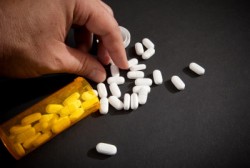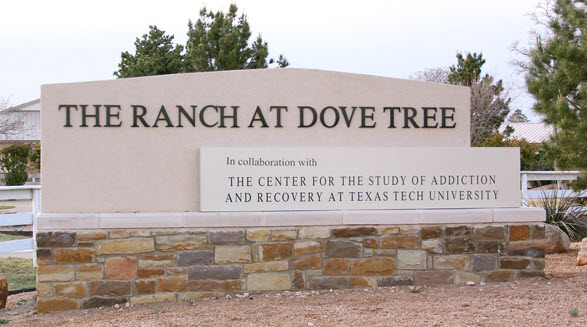5 Signs of Hydrocodone Addiction
Hydrocodone addiction has afflicted millions of individuals and continues to be one the most highly abused opioid drugs in America. Most hydrocodone is combined with analgesics and marketed under brand names including Lortab, Norco, Lorcet, and more recently, Zohydro-ER which is an extended release version, with the highest content of hydrocodone ever made available for pain relief.
How Hydrocodone Works
Hydrocodone acts as a central nervous system depressant to block pain, cough, and other stimuli. Everyone who is exposed to hydrocodone, will experience an excess release of dopamine into their brain which is the chemical that triggers a reward response in the brain’s reward center inducing the sense of pleasure, euphoria, and calmness.
What Causes Addiction?

Finishing prescriptions early is a potential sign of addiction.
Not everyone who is exposed to hydrocodone will become addicted, while some may be more susceptible than others. Genetics, biological markers, environmental factors, health, usage patterns, and durations of use are just a few of the contributing factors that can lead to addiction.
All rewarding and survival-based activities trigger the release of dopamine which signals their importance to the brain and reinforces their need to be repeated. Eating, drinking, having sex, or caring for babies are natural behaviors that increase dopamine, but, opioid drugs flood the brain with dopamine.
In general, the more exposure and the greater the dopamine release, the more importance the brain places on the behavior and according to NIDA, “Over time, if drug use continues, other pleasurable activities become less pleasurable, and taking the drug becomes necessary for the user just to feel “normal.”
- Tolerance
The first sign of addiction is tolerance to hydrocodone. As the brain adapts to the hydrocodone, it alters the way it responds to the drug to protect itself from overstimulation resulting in an increased need for more to obtain the desired effects.
- Dependence
Repeat usage of hydrocodoneresults in the depletion of the brain’s ability to naturally produce dopamine while damaging opioid receptors. The person may no longer enjoy other activities the way they used to, become preoccupied with cravings and behaviors to obtain and use more hydrocodone, and suffer withdrawals when ceasing use.
- Withdrawals
Physical and psychological withdrawals occur when the person suddenly reduces or stops taking hydrocodone. Symptoms may include; intense cravings, nausea, muscle aches, vomiting, diarrhea, anxiety, irritability, restlessness, and insomnia.
- Compulsive Use despite Negative Consequences
Hydrocodone addiction is often recognized when individuals continue to use the drug despite the harm it causes to their health, family, interpersonal relationships, or the damage it may cause to their social, legal, or financial status.
- Repeat Attempts to Quit
Unsuccessful attempts to quit hydrocodone use are classic signs of hydrocodone addiction. Most addicts need professional help and many will relapse multiple times after detox and formal treatment.
Right Step - Houston Central
Housed in a collection of historic homes surrounding a common courtyard, Right Step Houston nestles comfortably into the tree-lined streets of the city’s hip Montrose neighborhood.
Details ›The Ranch at Dove Tree
Salt-of-the earth friendliness and down home hospitality aren’t just West Texas stereotypes at The Ranch at Dove Tree, a treatment center located on 15 acres near Lubbock.
Details ›The Sundance Center
At this peaceful treatment center in upscale Scottsdale, residents learn how to enjoy all that life has to offer – without the assistance of drugs and alcohol.
Details ›



